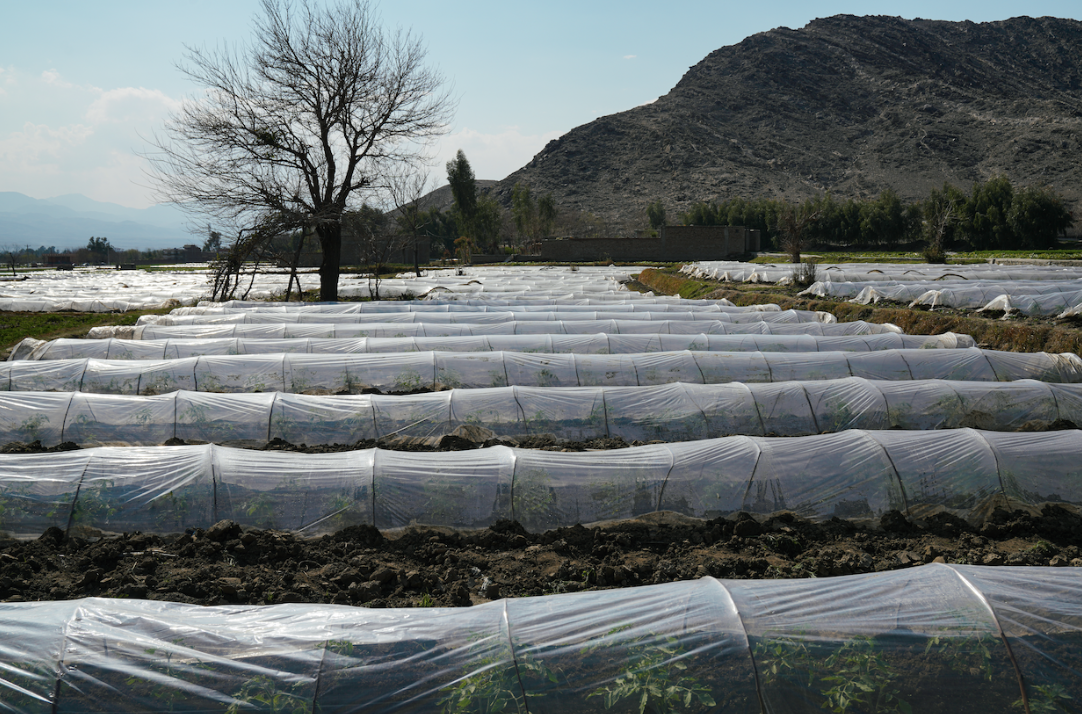Advancing global dialogue on agri-plastics and trade-related policy solutions

On 19 June 2025, FAO hosted a high-level hybrid briefing in Geneva titled “Cultivating Change: Agri-plastics and the Global Policy Response” to advance international collaboration on sustainable plastics management in agriculture. Organized by the FAO Liaison Office in Geneva in collaboration with FAO’s Office of Climate Change, Biodiversity and Environment (OCB), the session convened over 100 participants from governments, international organizations, civil society, and academia. The event took place ahead of the resumed fifth session of the Intergovernmental Negotiating Committee to develop an international legally binding instrument on plastic pollution, including in the marine environment (INC-5.2), scheduled for August 2025.
Opening the discussion, Kerry Allbeury, Senior Policy Advisor of the INC Secretariat, summarized the status of negotiations toward a global legally binding instrument on plastic pollution. She emphasized the importance of coordinated action, inclusive dialogue, and observer engagement, underlining that events like this can support more informed cross-sectoral decision-making. She noted that while plastic pollution is often associated with marine environments, terrestrial issues—particularly in agriculture—deserve greater attention within the treaty process.
Country perspectives followed, with Ritsuko Yoneda of Japan’s Ministry of Agriculture, Forestry and Fisheries highlighting her country’s experience in reducing agri-plastic waste. Japan has achieved an 80 percent recycling rate in the sector through legal bans on open-air burning, decentralized recycling infrastructure, and multi-stakeholder platforms. Yoneda praised FAO’s Voluntary Code of Conduct (VCoC) as a practical reference for policy development.
Daniela Garcia, Deputy Permanent Representative of Ecuador to the WTO, showcased trade’s growing role in addressing plastic pollution. Through Ecuador’s leadership in the WTO Dialogue on Plastic Pollution, she emphasized the need for transparency, policy alignment, and environmental safeguards. She reported that 85 WTO Members had adopted more than 220 relevant measures by 2023, including on agricultural plastics such as mulch film, fertilizer packaging, and fishing gear.
FAO’s Environment Lead, Lev Neretin, stressed the scale of the challenge: 13.4 million tonnes of plastics are used annually in agriculture, 40 percent of which are plastic films. He warned of the risks posed by microplastics to soil health, biodiversity, and food safety, noting FAO’s One Health framing. He presented the VCoC as a flexible tool to guide governments in reducing plastic use across the entire agri-food life cycle. Ongoing field projects in Kenya, Uruguay, and Pakistan, as well as partnerships with IAEA to standardize microplastic detection in soil, underscore FAO’s technical and practical engagement on the issue.
Finally, Ieva Baršauskaitė from the International Institute for Sustainable Development (IISD) demonstrated how trade policies can accelerate the shift away from harmful plastics. She presented data showing a sharp increase in WTO-notified measures, including bans, technical standards, and support for substitutes. She stressed the need to expand these initiatives across products and regions, calling for coordinated efforts to scale up solutions in sectors like agriculture.
As global negotiations for a plastics treaty resume in August 2025, FAO reaffirms its strong commitment to addressing plastic pollution by supporting its Members with targeted technical assistance, robust evidence-based tools, and inclusive global dialogue. The event underscored the critical role of the food and agriculture sector in tackling plastic pollution and highlighted the need to integrate trade and sustainability considerations into future policy frameworks.
